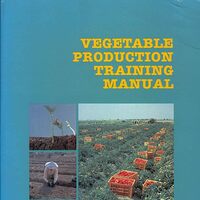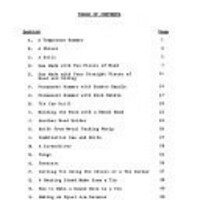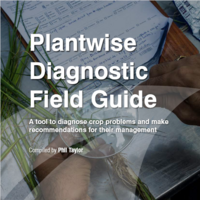Search
Books+
Searching 1,730 books
Search related to the career Dietary Technician
How to become a Dietary Technician:
To become a Dietary Technician, you typically need to follow these steps:
1. Earn a high school diploma or equivalent: Start by completing your high school education or obtaining a GED certificate.
2. Enroll in a Dietary Technician program: Look for an accredited program that offers a Dietary Technician certificate or associate degree. These programs are usually available at community colleges, vocational schools, or universities.
3. Complete the required coursework: During your program, you will study various subjects related to nutrition, food science, diet therapy, and food service management. You will also gain practical experience through internships or clinical rotations.
4. Obtain certification: While certification is not always mandatory, it can enhance your job prospects. The Commission on Dietetic Registration (CDR) offers the Certified Dietary Manager (CDM) credential, which can be obtained by passing an exam. Some states may have additional certification requirements, so be sure to check the regulations in your area.
5. Gain practical experience: Seek opportunities to gain hands-on experience in dietary settings. This can include internships, volunteer work, or part-time jobs in hospitals, nursing homes, or other healthcare facilities.
6. Apply for jobs: Once you have completed your education and gained some experience, start applying for Dietary Technician positions. Look for openings in hospitals, long-term care facilities, schools, or other healthcare settings.
7. Continuing education: Stay updated with the latest developments in the field by participating in continuing education programs or workshops. This will help you maintain your knowledge and skills as a Dietary Technician.
Duties of a Dietary Technician:
The duties of a Dietary Technician may vary depending on the work setting, but some common responsibilities include:
1. Assessing nutritional needs: Collaborating with healthcare professionals to evaluate the nutritional requirements of patients or clients.
2. Developing meal plans: Creating individualized meal plans that meet specific dietary needs, taking into account factors such as allergies, medical conditions, and personal preferences.
3. Monitoring food intake: Tracking and documenting the food and fluid intake of patients or clients to ensure they are receiving appropriate nutrition.
4. Providing nutrition education: Educating patients, clients, and their families about proper nutrition, dietary restrictions, and healthy eating habits.
5. Managing food service operations: Overseeing the procurement, preparation, and distribution of food in healthcare facilities, ensuring compliance with safety and sanitation regulations.
6. Collaborating with healthcare teams: Working closely with registered dietitians, physicians, nurses, and other healthcare professionals to coordinate and implement nutrition care plans.
7. Monitoring and evaluating: Continuously assessing the effectiveness of nutrition interventions and making necessary adjustments to ensure optimal patient outcomes.
8. Documenting and reporting: Maintaining accurate records of patient or client information, dietary plans, and progress, and providing reports as required.
Remember, the specific duties may vary depending on the work environment and the level of responsibility assigned to the Dietary Technician.
Source: Various AI tools
Searched in English.







































